
Sana'a: The Ancient Jewel of Arabia
Sana'a, the ancient capital of Yemen, is a city steeped in history and culture. With its origins dating back over 2,500 years, Sana'a offers a unique glimpse into the past with its well-preserved architecture and vibrant souks. The city's old town, a UNESCO World Heritage site, is a labyrinth of narrow streets lined with multi-storied buildings adorned with intricate patterns and stained-glass windows. Walking through these streets feels like stepping back in time, with the scent of spices and incense filling the air. One of the most striking features of Sana'a is its towering mosques and minarets. The Great Mosque of Sana'a, one of the oldest in the Muslim world, stands as a testament to the city's rich religious heritage. Visitors can also explore the National Museum of Yemen, which houses artifacts that tell the story of the region's ancient civilizations. The city's bustling markets are a sensory delight, offering everything from traditional Yemeni textiles to aromatic spices and hand-crafted jewelry. Sana'a's climate is another draw for tourists, with its mild temperatures making it an ideal destination year-round. The city's high altitude means that even in the height of summer, the weather remains pleasant. For those looking to venture beyond the city, the surrounding mountains offer stunning vistas and opportunities for hiking. Despite its challenges, Sana'a remains a captivating destination for those seeking to explore the rich history and culture of the Arabian Peninsula.
Local tips in Sana'a
- Dress modestly to respect local customs and traditions.
- Learn a few basic Arabic phrases; it will go a long way in making connections with locals.
- Visit the old town early in the morning to avoid the midday crowds and heat.
- Try the local cuisine, especially dishes like Saltah and Mandi.
- Be cautious and stay informed about the current political situation before planning your trip.
Sana'a: The Ancient Jewel of Arabia
Sana'a, the ancient capital of Yemen, is a city steeped in history and culture. With its origins dating back over 2,500 years, Sana'a offers a unique glimpse into the past with its well-preserved architecture and vibrant souks. The city's old town, a UNESCO World Heritage site, is a labyrinth of narrow streets lined with multi-storied buildings adorned with intricate patterns and stained-glass windows. Walking through these streets feels like stepping back in time, with the scent of spices and incense filling the air. One of the most striking features of Sana'a is its towering mosques and minarets. The Great Mosque of Sana'a, one of the oldest in the Muslim world, stands as a testament to the city's rich religious heritage. Visitors can also explore the National Museum of Yemen, which houses artifacts that tell the story of the region's ancient civilizations. The city's bustling markets are a sensory delight, offering everything from traditional Yemeni textiles to aromatic spices and hand-crafted jewelry. Sana'a's climate is another draw for tourists, with its mild temperatures making it an ideal destination year-round. The city's high altitude means that even in the height of summer, the weather remains pleasant. For those looking to venture beyond the city, the surrounding mountains offer stunning vistas and opportunities for hiking. Despite its challenges, Sana'a remains a captivating destination for those seeking to explore the rich history and culture of the Arabian Peninsula.
When is the best time to go to Sana'a?
Iconic landmarks you can’t miss
Al-Saleh Mosque
Discover Al-Saleh Mosque, the architectural masterpiece of Sana'a, blending tradition and modernity in a tranquil setting.
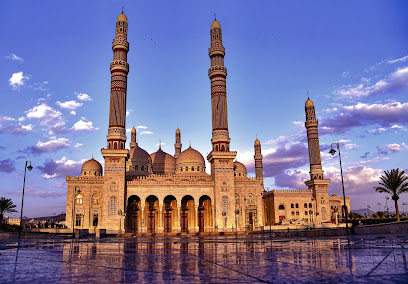
Althawra Park
Experience tranquility and natural beauty at Althawra Park, a serene escape in the heart of Sana'a, Yemen, perfect for relaxation and cultural exploration.
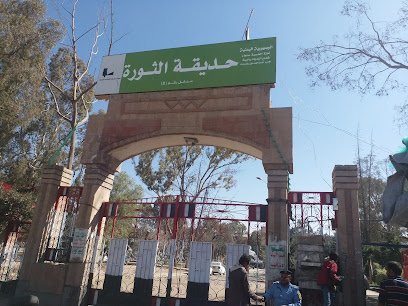
Al Sabeen Square
Discover the lush greenery and vibrant culture of Al Sabeen Square in Sana'a, Yemen, a perfect retreat for tourists seeking local experiences.
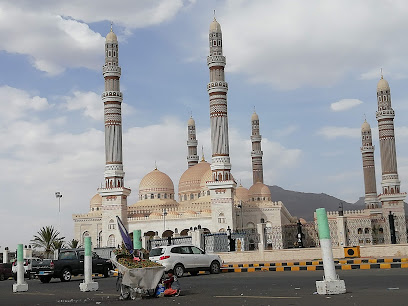
Dar AlHajar
Discover the breathtaking Dar AlHajar, a historical landmark in Yemen that blends stunning architecture with rich cultural heritage.
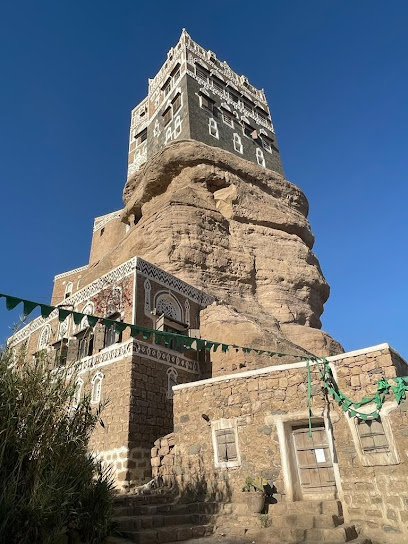
Fun City
Discover the thrill of Fun City in Sana'a, Yemen – an amusement park filled with rides, entertainment, and fun for the whole family.
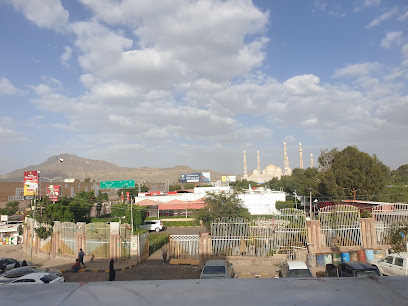
Seera Castle
Uncover the history and beauty of Seera Castle, a stunning fortress overlooking the Arabian Sea in Aden, Yemen.
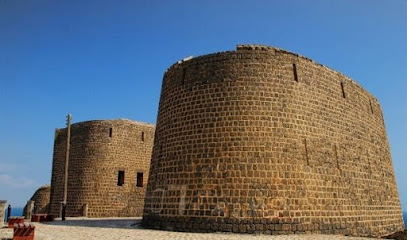
Magical City Family Entertainment Center
Experience the thrills and joys at Magical City Family Entertainment Center, a top theme park in Sana'a, Yemen, perfect for family fun and entertainment.
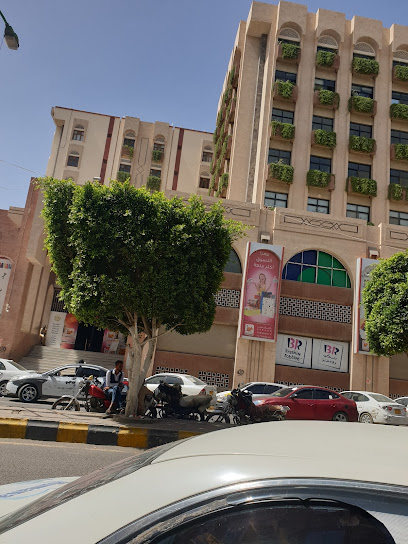
باب اليمن صنعاء القديمة
Discover the historical beauty of Bab al-Yemen, the iconic gateway to Sana'a's vibrant old city, where tradition and culture come alive.
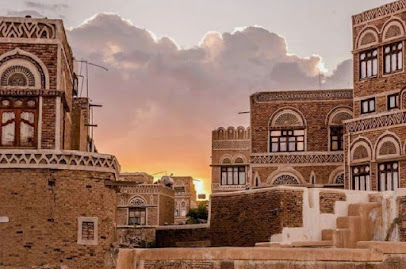
Sana'a Great Mosque
Explore the architectural beauty and spiritual significance of Sana'a Great Mosque, a historic gem in Yemen's capital, filled with cultural richness.
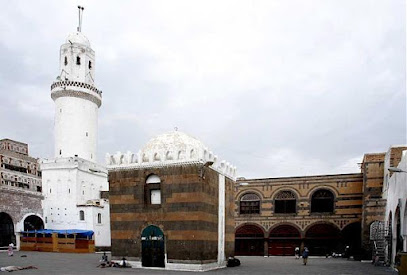
National Museum
Discover Yemen's cultural heritage at the National Museum in Sana'a, showcasing ancient artifacts, art, and the rich history of the region.
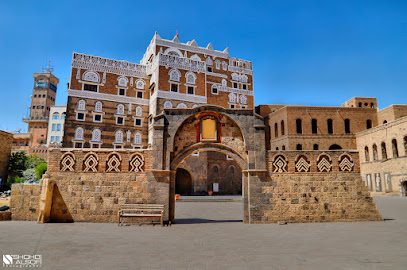
Old Sana'a City's Wall
Discover the rich history and stunning architecture of Old Sana'a City's Wall, a UNESCO World Heritage site in the heart of Yemen's capital.
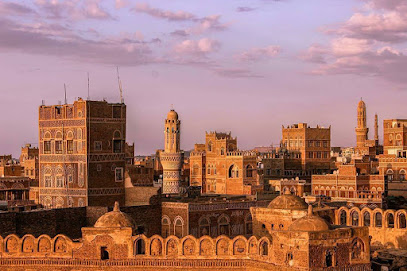
قصر الكثيري
Explore Al Kathiri Palace in Seiyun, Yemen – a historical landmark showcasing exquisite architecture and rich cultural heritage.
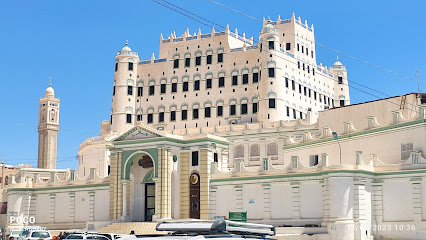
Lamar Hotel
Discover the charm of Sana'a at Lamar Hotel, blending comfort and culture in the heart of Yemen's historic capital.
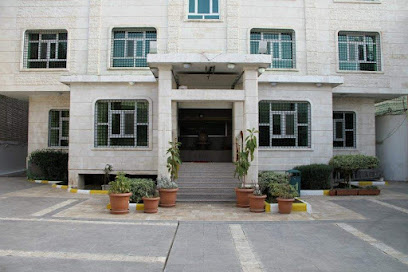
حصن الزكاتين
Explore the Alzakateen Fortress in Hababah, Yemen, a historical landmark showcasing stunning architecture and a rich cultural heritage.
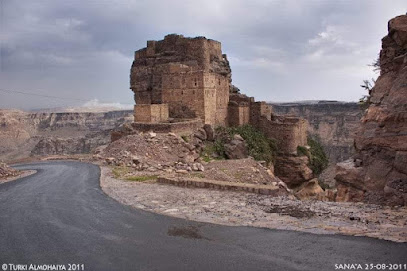
Sana'a Center For Strategic Studies
Explore the Sana'a Center for Strategic Studies, a key research foundation in Yemen, offering insights into the region's socio-political landscape.
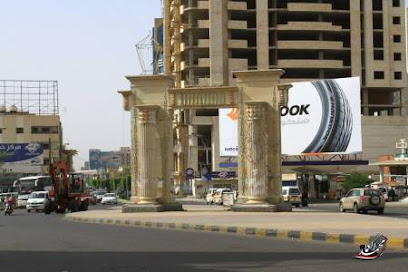
Unmissable attractions to see
Althawra Park
Experience the serene beauty of Althawra Park in Sana'a, Yemen, where lush greenery meets tranquility in a stunning urban oasis.
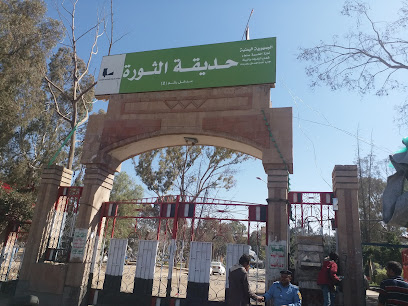
Arboretum and flowers Happy Yemen
Explore the vibrant flora and serene landscapes of Happy Yemen Arboretum in Sana'a, a perfect escape for nature lovers and families alike.
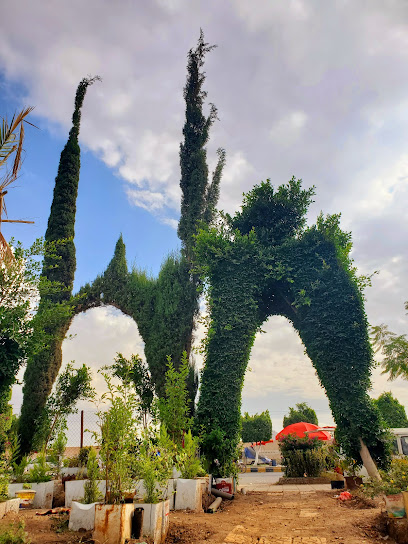
حديقة الثورة العامة
Discover the serene beauty of Al-Thawra Public Garden in Sana'a, Yemen, a tranquil escape filled with vibrant flora and cultural experiences.
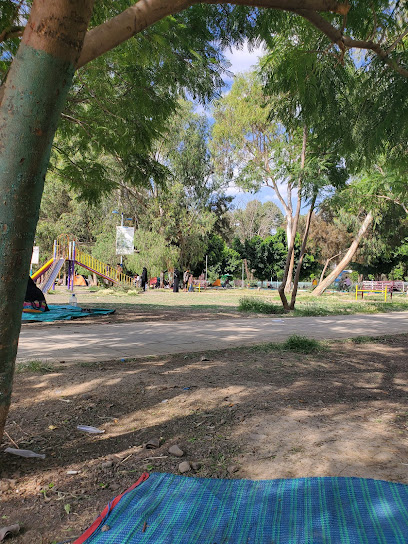
حديقة إبن ماجد
Experience the tranquil charm of حديقة إبن ماجد, a serene garden in Sana'a, perfect for relaxation and cultural exploration.
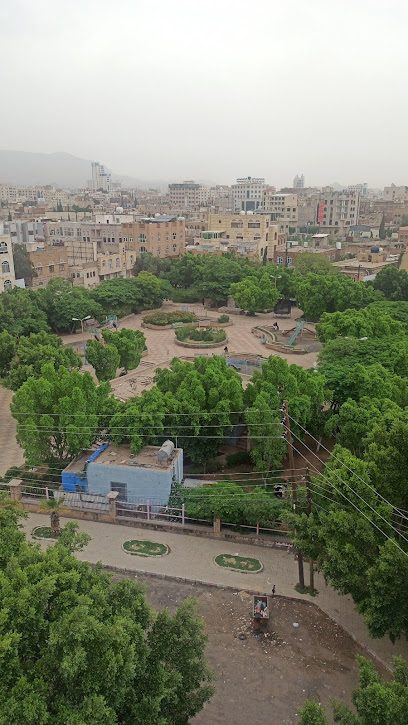
وادي محيب
Discover the breathtaking beauty of Wadi Mahib, a serene oasis in Yemen known for its lush landscapes and rich biodiversity, perfect for nature enthusiasts.
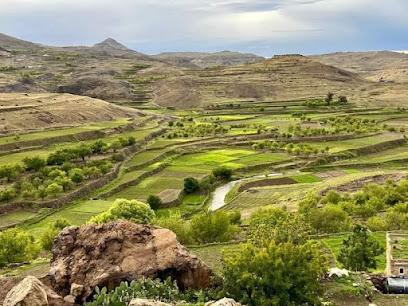
صنعاء القديمه
Explore Old Sana'a, a UNESCO World Heritage site, known for its stunning architecture, vibrant culture, and rich history that captivates every traveler.
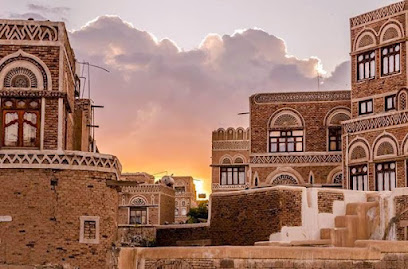
Essential places to dine
Alshaibany corporation for restaurants
Discover exquisite dining at Alshaibany Corporation – where Yemeni flavors meet culinary excellence in Sana'a.
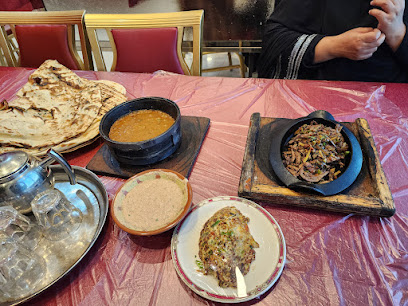
Remas Restaurants
Experience authentic Yemeni cuisine at Remas Restaurants in Sana'a - where flavor meets tradition in a warm and inviting atmosphere.
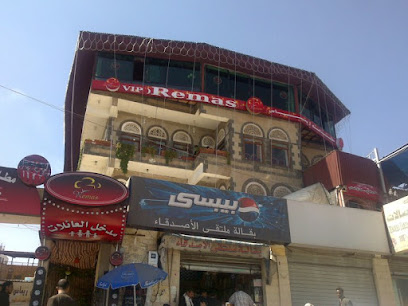
المطعم الملكي
Savor the authentic flavors of Yemen at المطعم الملكي - a culinary treasure in Sana'a offering traditional dishes in a welcoming atmosphere.
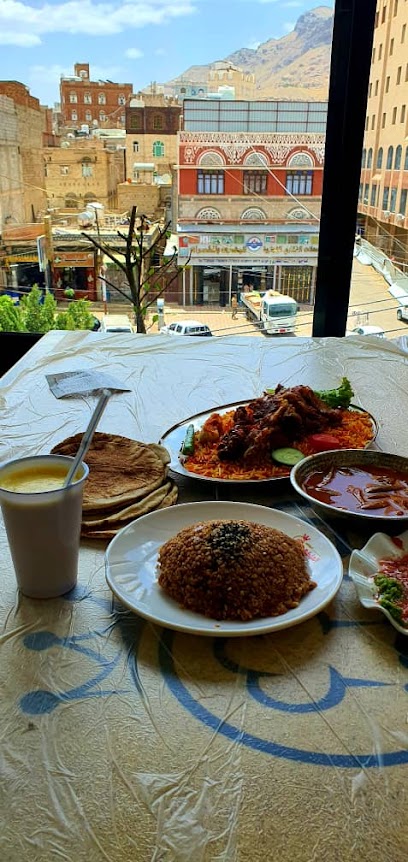
Mumbai Darbar Indian Restaurant
Experience authentic Indian flavors at Mumbai Darbar Indian Restaurant in Sana'a – where every dish tells a story.
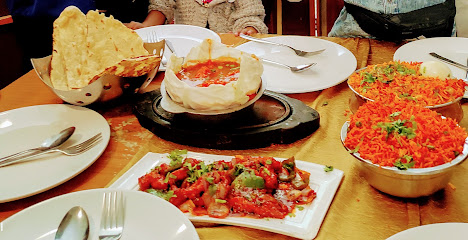
نكهة زمان
Discover authentic Yemeni flavors at نكهة زمان, a must-visit restaurant in Sana'a offering traditional dishes in a welcoming atmosphere.
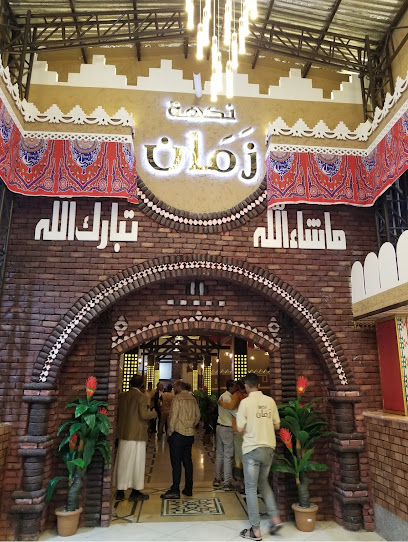
Garden City Restorant
Discover authentic Yemeni flavors at Garden City Restaurant in Sana'a – where tradition meets taste.
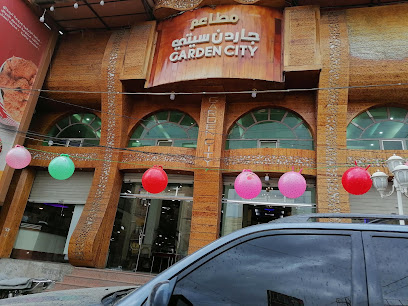
PavaRoti Resturant
Discover authentic Yemeni flavors at PavaRoti Restaurant in Sanaa - where tradition meets culinary excellence.
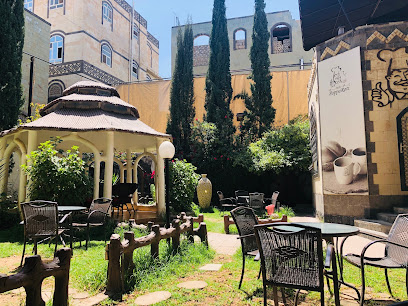
Sana'a Restaurant
Discover authentic Yemeni cuisine at Sana'a Restaurant - a must-visit culinary destination in Yemen’s historic capital.
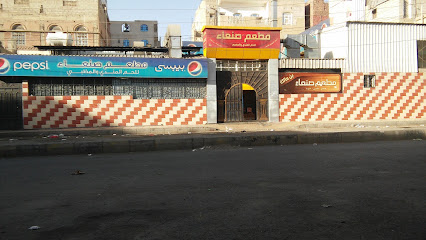
Shibam Hadramout Restaurant
Experience authentic Yemeni flavors at Shibam Hadramout Restaurant in Sana'a – a culinary journey through tradition.
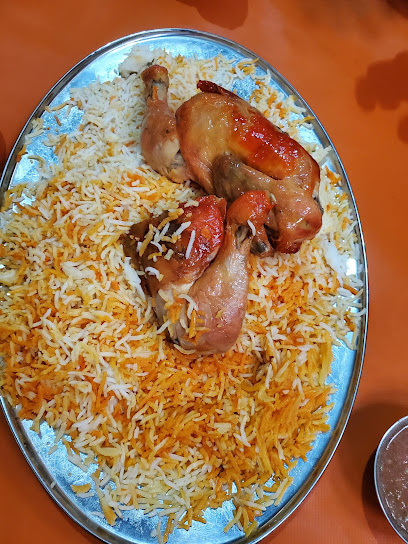
Time Square
Savor authentic Yemeni flavors in a vibrant atmosphere at Time Square - your culinary destination in Sana'a.
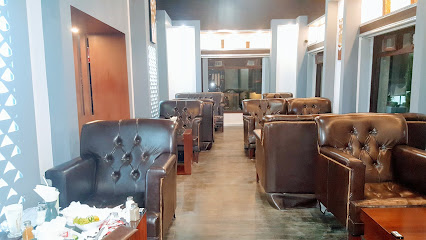
مطعم البوري
Discover authentic Yemeni flavors at مطعم البوري in Sana'a – a culinary gem showcasing traditional dishes in a warm atmosphere.
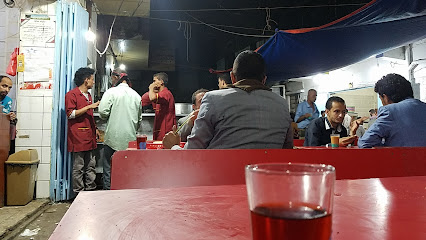
Tunis Restaurant
Experience authentic Yemeni cuisine at Tunis Restaurant in Sana'a, where tradition meets flavor in every dish.
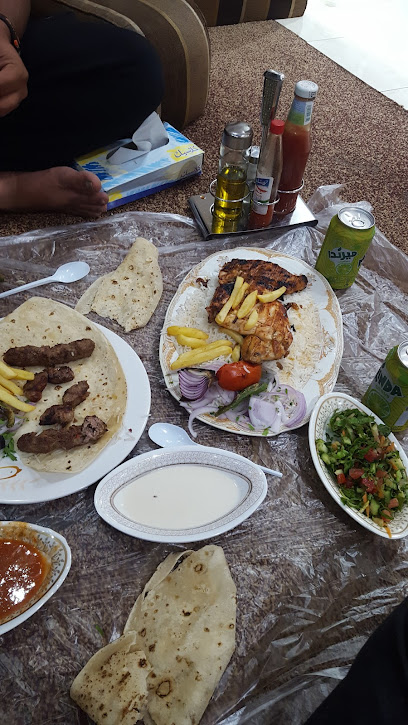
مطعم سميرة SAMEERA RESTAURANT
Discover authentic Ethiopian cuisine at Sameera Restaurant in Sana'a - where rich flavors meet warm hospitality.
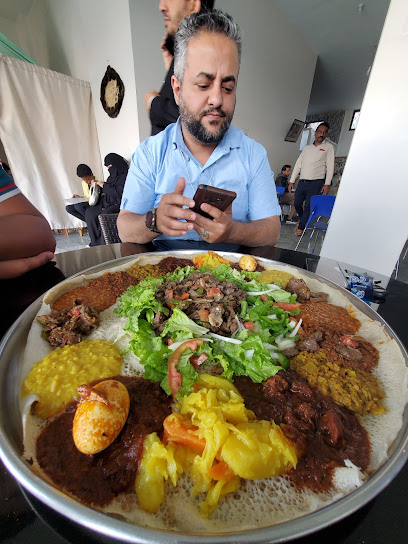
Sanaa Restaurants
Explore the rich culinary heritage of Sanaa with its delightful blend of traditional Yemeni dishes and modern flavors in charming restaurants.
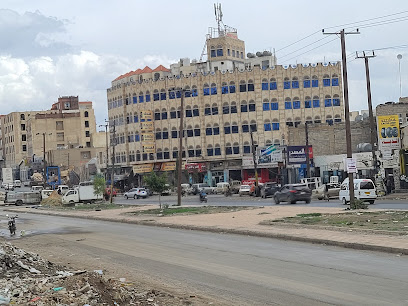
Eden Restaurant
Discover authentic Yemeni cuisine at Eden Restaurant in Sana'a - where every dish tells a story.
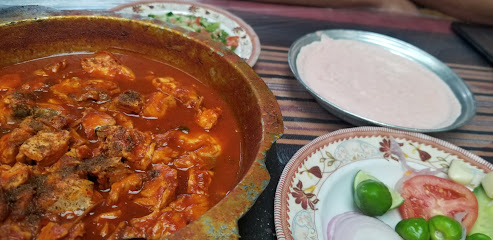
Markets, malls and hidden boutiques
Yemen Mall
Explore Yemen Mall in Sana'a for an enriching shopping experience blending local culture and modern retail offerings.
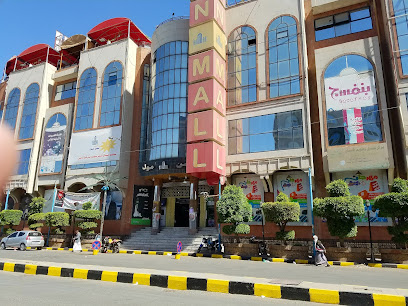
Sam Mall
Experience the modern charm of Sam Mall in Sana'a, Yemen, where shopping, dining, and entertainment come together in a vibrant atmosphere.
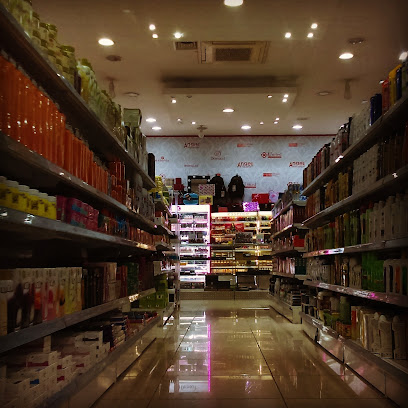
Great Deal Online Shopping
Experience a diverse shopping haven in Sana'a's Tread Center Mall, featuring electronics, clothing, and auto parts for every traveler.

LUXURY ONLINE
Explore Luxury Online in Sana'a for a unique blend of cosmetics, perfumes, and wellness products, embodying elegance and sophistication.
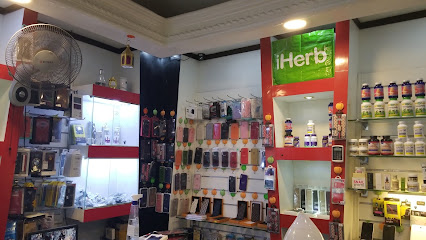
Yemen Gift Cards
Explore Yemen Gift Cards, your go-to spot for unique Yemeni gifts that embody the culture and charm of Sana'a.

World of Gifts and Antiques دنيا التحف والهدايا فرع القصر
Explore the World of Gifts and Antiques in Sana'a for unique souvenirs and culturally rich treasures to take home.
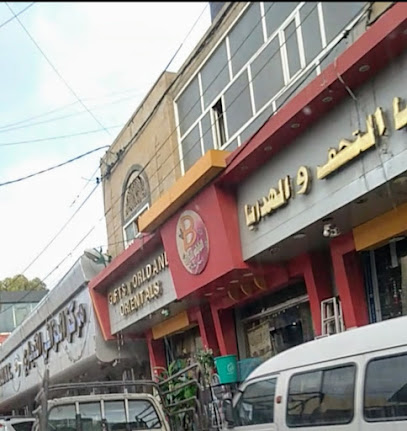
حفاضات لف مي
Discover premium baby clothing and diaper solutions at حفاضات لف مي in Sana'a, Yemen, ensuring comfort and safety for your little ones.
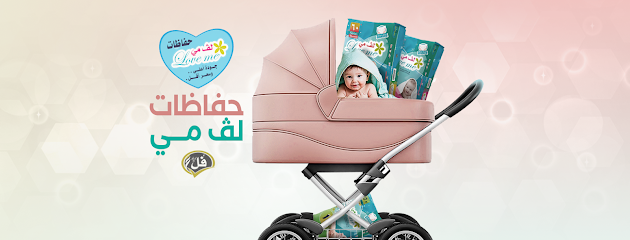
SHEIN Sana'a Yemen
Experience the lively shopping scene at SHEIN Sana'a, a modern mall in Yemen's capital offering a diverse array of fashion and lifestyle products.
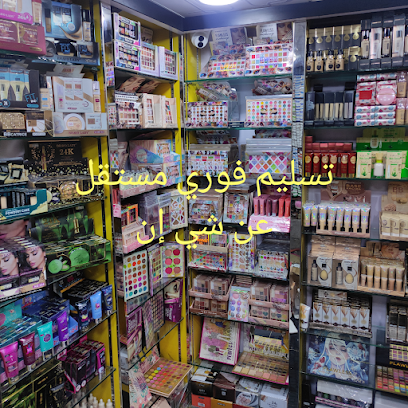
Anayees Brands اناييس
Explore Anayees Brands in Sana'a for a diverse shopping experience, featuring clothing, electronics, and more in a vibrant atmosphere.
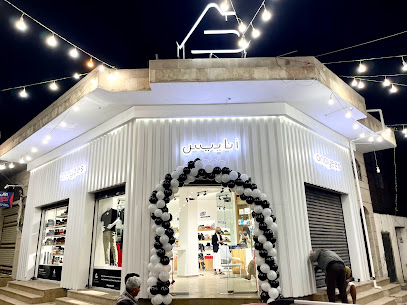
مجوهرات بيت الذهب|أسامة الرفاعي فرع1
Discover exquisite gold jewelry at مجوهرات بيت الذهب in Sana'a, where tradition meets elegance in every handcrafted piece.
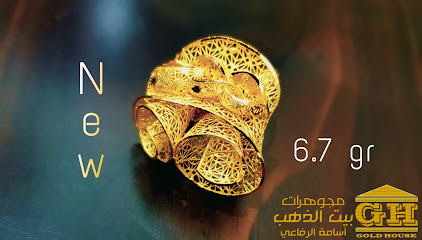
مدينة سام | لبيع ملبوسات العرسان وأكسسواراتها
Explore Madinat Sam in Sana'a for exquisite bridal attire and accessories, celebrating the beauty of Yemeni culture.

ابو نورالدين للتحف والهدايا والجنابي والاحزمه الاصليه
Explore authentic Yemeni craftsmanship at Abu Nour Al-Din Gift Shop, your gateway to unique souvenirs and cultural treasures in Sana'a.
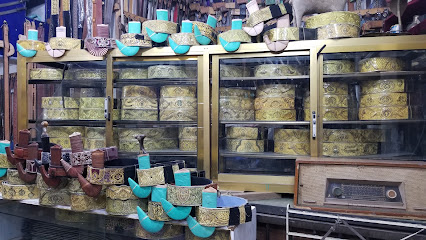
النويد لبيع أدوات صياغة الذهب وعلب المجوهرات و أجهزة بيع الألماس
Discover exquisite goldsmith tools and handcrafted jewelry boxes at Al-Nuwid in Sana'a, reflecting Yemen's rich artisanal heritage.
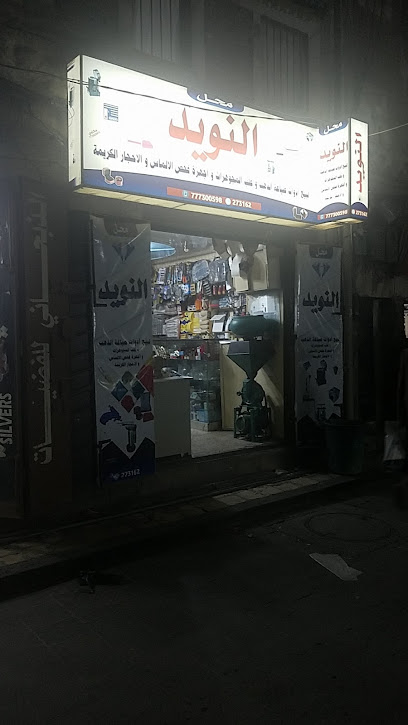
محلات السروري الدولية للاستيراد
Discover unique Yemeni crafts and modern imports at محلات السروري الدولية للاستيراد in Sana'a, a vibrant shopping destination.
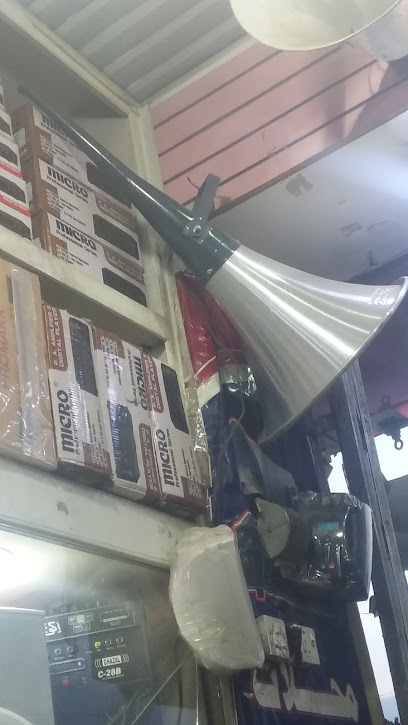
SATELLITE ALSAEEDAH
Explore cutting-edge technology and unbeatable deals at Satellite Alsaeedah, your go-to electronics store in Sana'a, Yemen.
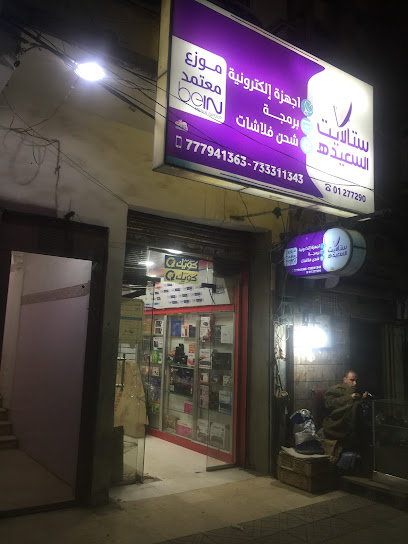
Essential bars & hidden hideouts
حوث
Discover the vibrant social hub of حوث in Sana'a, Yemen, where local charm and refreshing drinks create an unforgettable experience.
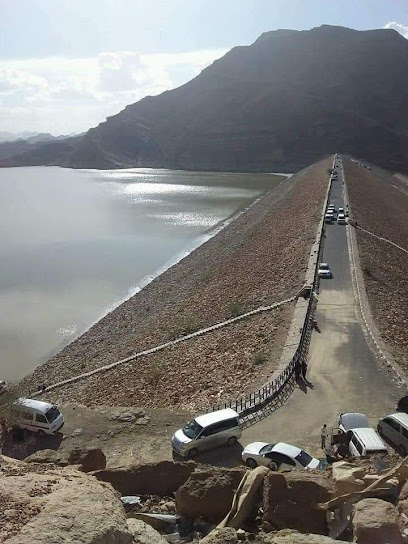
مركز غيث البحر لخدمه الاعراس 770465189
Experience the vibrant nightlife at مركز غيث البحر لخدمه الاعراس in Sana'a, where modern charm meets traditional Yemeni hospitality.
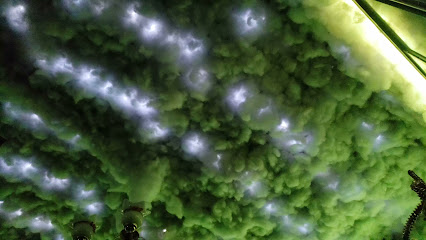
زهرة البنفسج
Immerse yourself in Sana'a's vibrant nightlife at زهرة البنفسج, where local culture meets refreshing beverages in a warm, friendly atmosphere.
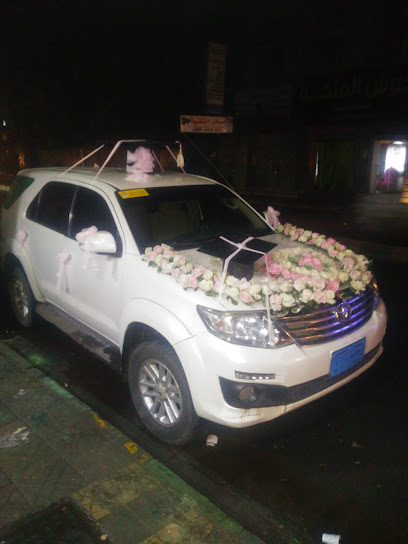
هايل للزبيب ولوزوالمكسرات
Discover the rich flavors of Yemen at Hayil for Raisins and Nuts, a bar specializing in delicious nuts and dried fruits in Sana'a.

شرهان لأصل القات المطري
Experience the vibrant Yemeni culture at شرهان لأصل القات المطري, a unique pub in Sana'a specializing in القات and local delicacies.

الشرعبي للقات الارحبي
Discover the essence of Yemeni culture at الشرعبي للقات الارحبي, where traditional qat meets lively social interactions in the heart of صنعاء.
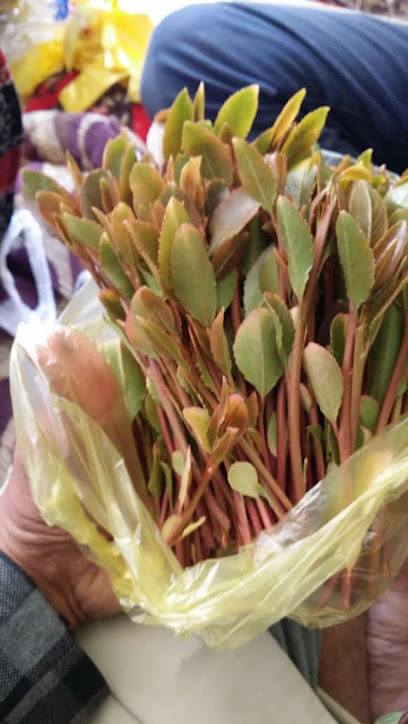
فكري البوف للوجبات الطازجه
Experience the rich flavors of Yemen at فكري البوف للوجبات الطازجه, a bar renowned for its fresh meals and vibrant atmosphere in Sana'a.
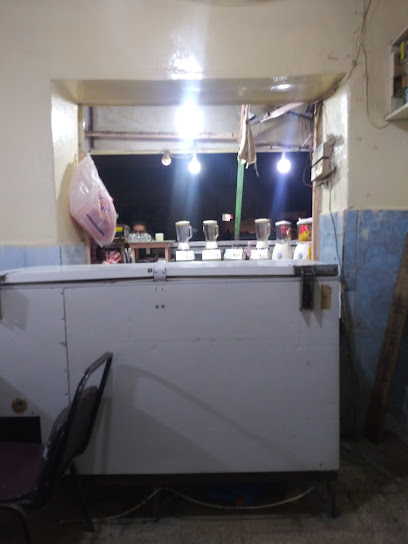
الفؤاد للشبس
Discover الفؤاد للشبس, a vibrant bar in Sana'a, Yemen, offering a unique blend of local culture and lively atmosphere for an unforgettable experience.

بيت السمه
Experience the vibrant atmosphere of بيت السمه, a charming bar in the historic Old City of Sana'a, where culture and camaraderie come alive.

The Lord
Experience vibrant nightlife at The Lord, a lively bar in Sana'a, Yemen, offering a mix of local and international beverages in a welcoming environment.

sanaa
Experience the vibrant nightlife of Sanaa, Yemen's capital, at its premier bar, where tradition meets modern hospitality.

الله الجبال
Experience the vibrant nightlife and local culture at الله الجبال, a popular bar in the heart of Sana'a, Yemen.

الحبيشي
Discover الحبيشي: A vibrant bar in Sana'a blending local culture with modern relaxation, perfect for unwinding after exploring Yemen's capital.

الصيانه
Discover the vibrant atmosphere of الصيانه, a lively pub in Sana'a offering local flavors and a warm, welcoming ambiance for tourists.
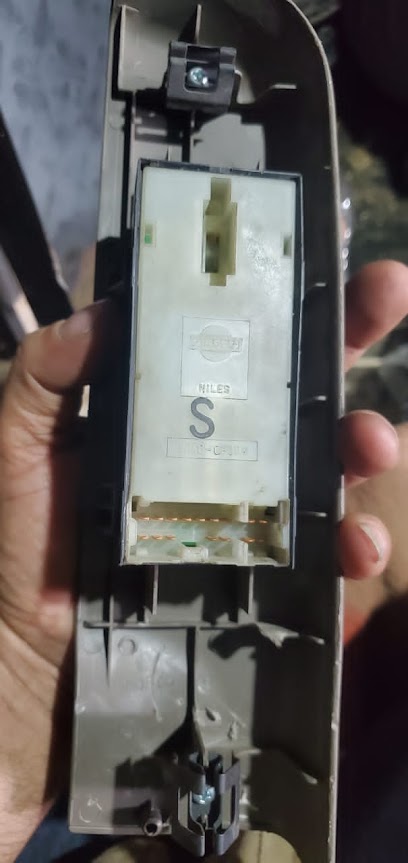
Local Phrases
-
- Helloمرحبا
[marhaban] - Goodbyeوداعا
[wadaean] - Yesنعم
[naam] - Noلا
[laa] - Please/You're welcomeمن فضلك
[min fadlik] - Thank youشكرا
[shukran] - Excuse me/Sorryعذرا
[aathara] - How are you?كيف حالك؟
[kayfa haluk?] - Fine. And you?بخير. وأنت؟
[bikhair. wa ant?] - Do you speak English?هل تتحدث الإنجليزية؟
[hal tatahadath al'injilia?] - I don't understandلا أفهم
[laa afham]
- Helloمرحبا
-
- I'd like to see the menu, pleaseأريد رؤية القائمة، من فضلك
[urid ru'ya alqaimah, min fadlik] - I don't eat meatأنا لا آكل اللحم
[ana la akul allaham] - Cheers!في صحتك!
[fi sahtak!] - I would like to pay, pleaseأريد أن أدفع، من فضلك
[urid an adfae, min fadlik]
- I'd like to see the menu, pleaseأريد رؤية القائمة، من فضلك
-
- Help!النجدة!
[alnajdah!] - Go away!انصرف!
[ansarif!] - Call the Police!اتصل بالشرطة!
[itasil bialshurta!] - Call a doctor!اتصل بطبيب!
[itasil bitalib!] - I'm lostلقد ضللت
[laqad dalalt] - I'm illأنا مريض
[ana mareed]
- Help!النجدة!
-
- I'd like to buy...أريد أن أشتري...
[urid an ashtari...] - I'm just lookingأنا فقط أتفرج
[ana faqat atfarij] - How much is it?بكم هذا؟
[bi kam hatha?] - That's too expensiveهذا غالي جدا
[hatha ghali jiddan] - Can you lower the price?هل يمكنك خفض السعر؟
[hal yumkinuk khafd alsu'r?]
- I'd like to buy...أريد أن أشتري...
-
- What time is it?كم الساعة؟
[kam alsaa'ah?] - It's one o'clockالساعة الواحدة
[alsaa'ah alwahidah] - Half past (10)الساعة العاشرة والنصف
[alsaa'ah al'ashirah walnisf] - Morningالصباح
[alsabah] - Afternoonالمساء
[almasa'] - Eveningالليل
[allayl] - Yesterdayأمس
[ams] - Todayاليوم
[alyawm] - Tomorrowغدا
[ghadan] - 1واحد
[wahid] - 2اثنان
[ithnan] - 3ثلاثة
[thalatha] - 4أربعة
[arba'ah] - 5خمسة
[khamsah] - 6ستة
[sittah] - 7سبعة
[sab'ah] - 8ثمانية
[thamaniah] - 9تسعة
[tis'ah] - 10عشرة
[asharah]
- What time is it?كم الساعة؟
-
- Where's a/the...?أين...؟
[ayna...?] - What's the address?ما هو العنوان؟
[ma hu al'unaan?] - Can you show me (on the map)?هل يمكنك أن تريني (على الخريطة)؟
[hal yumkinuk an tarini (ala alkhareetah)?] - When's the next (bus)?متى يأتي الحافلة التالية؟
[mata yaati alhafilah altaliyah?] - A ticket (to ....)تذكرة (إلى...)
[tazkirah (ila...)]
- Where's a/the...?أين...؟
History of Sana'a
-
Sana'a, one of the oldest continuously inhabited cities in the world, is believed to have been founded over 2,500 years ago. The city’s origins are deeply intertwined with the ancient Kingdom of Saba, known for the legendary Queen of Sheba. Sana'a served as an important trading hub in the region, facilitating the exchange of goods such as frankincense and myrrh.
-
The advent of Islam in the 7th century CE brought significant changes to Sana'a. The city became an early center of Islamic learning and culture. The Great Mosque of Sana'a, one of the oldest mosques in the world, was constructed during this period. It is said that the Prophet Muhammad himself ordered its construction, which underscores the city's importance in early Islamic history.
-
During the 13th and 14th centuries, Sana'a experienced a golden age under the Rasulid Dynasty. This period saw the construction of many of the city's iconic multi-story buildings made of rammed earth and adorned with intricate geometric patterns. The Rasulid rulers also promoted arts, science, and trade, making Sana'a a vibrant cultural and economic center.
-
In the 16th century, Sana'a came under Ottoman rule, marking the beginning of a turbulent period. The Ottomans faced considerable resistance from local tribes, leading to numerous battles and power struggles. Despite the conflicts, the Ottomans left an indelible mark on the city’s architecture and infrastructure, including the construction of public baths and caravanserais.
-
The Zaydi Imamate, a theocratic state led by Zaydi Shi'a Imams, ruled Sana'a intermittently from the 9th century and more firmly from the 17th century onward. The Imamate played a crucial role in the cultural and religious life of the city. In the 20th century, Imam Yahya Muhammad Hamid ed-Din led efforts to unify Yemen, with Sana'a becoming the political and administrative capital of the newly unified North Yemen in 1918.
-
In the 20th and 21st centuries, Sana'a has grappled with modernization and conflict. The city’s Old City was designated a UNESCO World Heritage Site in 1986, recognizing its unique architectural heritage and historical significance. Despite the challenges posed by political instability and conflict, Sana'a remains a living testament to Yemen's rich history and cultural legacy.
Sana'a Essentials
-
Sana'a is accessible via Sana'a International Airport (SAH), located around 13 kilometers from the city center. International flights are limited and subject to change due to the ongoing conflict in Yemen. Travelers typically fly into larger hubs like Cairo or Dubai and then connect to Sana'a. Overland travel from neighboring countries is not recommended due to security concerns.
-
Taxis are the main mode of transportation within Sana'a. They are relatively inexpensive but ensure you agree on a fare before starting your journey. Public buses are available but may be crowded and less reliable. Renting a car is possible but not recommended unless you are familiar with local driving conditions and have a trusted local guide.
-
The official currency is the Yemeni Rial (YER). Credit cards are not widely accepted, so it is advisable to carry sufficient cash. ATMs are available but may not always be reliable due to power outages. It’s best to exchange money at banks or authorized currency exchange offices.
-
Due to ongoing conflicts, safety is a major concern in Sana'a. Many governments advise against all travel to Yemen. If you must travel, avoid high-crime areas such as certain parts of the Old City after dark. Always stay updated on the local situation and follow advice from authorities and locals. Keep a low profile and avoid discussing sensitive topics.
-
In case of emergency, dial 199 for police, 191 for medical emergencies, and 193 for the fire department. Be aware that emergency services may be limited. It is crucial to have comprehensive travel insurance that includes medical evacuation. Make a note of your country's embassy or consulate contact details.
-
Fashion: Do dress modestly; women should wear headscarves and long clothing. Men should avoid wearing shorts. Religion: Do respect Islamic customs and traditions. Public Transport: Do be respectful and avoid overcrowded buses. Greetings: Do greet people with a handshake or a nod; avoid physical contact with the opposite sex. Eating & Drinking: Do accept food and drink graciously if offered; avoid eating in public during Ramadan.
-
To experience Sana'a like a local, visit the bustling Bab al-Yemen market for traditional goods and local delicacies. Engage with locals who are often hospitable and willing to share stories about the city's rich history. Don’t miss the opportunity to explore the historic Old City with its unique architecture and ancient mosques. Try local dishes like Saltah and Maraq for an authentic culinary experience.
Trending Landmark in Sana'a
Nearby Cities to Sana'a
-
Things To Do in Dhamar
-
Things To Do in Ibb
-
Things To Do in Jizan
-
Things To Do in Najran
-
Things To Do in Aden
-
Things To Do in Khamis Mushait
-
Things To Do in Abha
-
Things To Do in Obock
-
Things To Do in Tadjoura
-
Things To Do in Djibouti City
-
Things To Do in Loyada
-
Things To Do in Arta
-
Things To Do in Ali Sabieh
-
Things To Do in Dikhil
-
Things To Do in Adi Keyh









